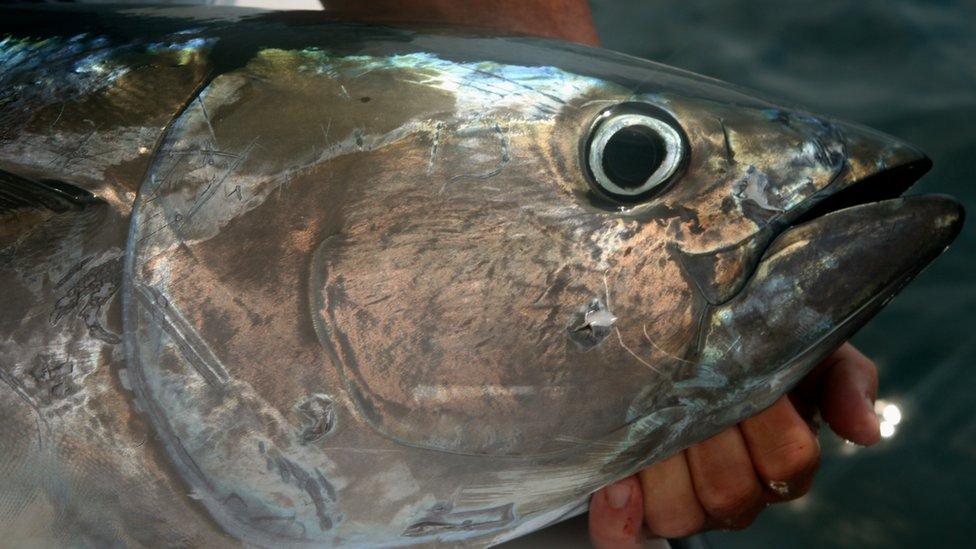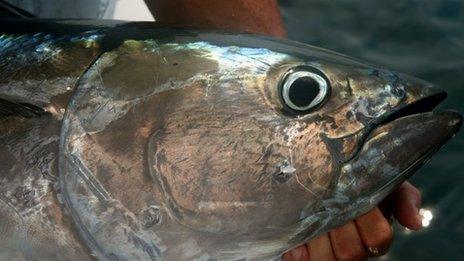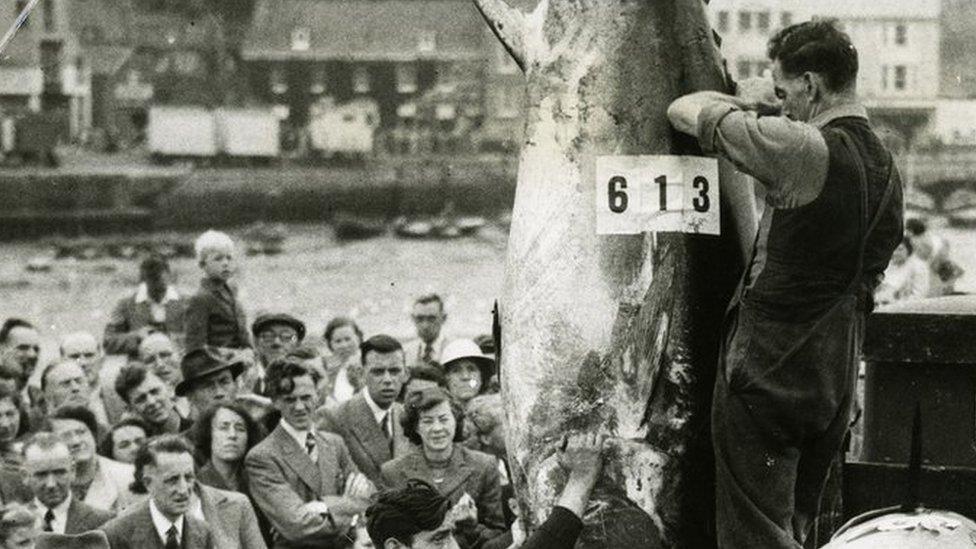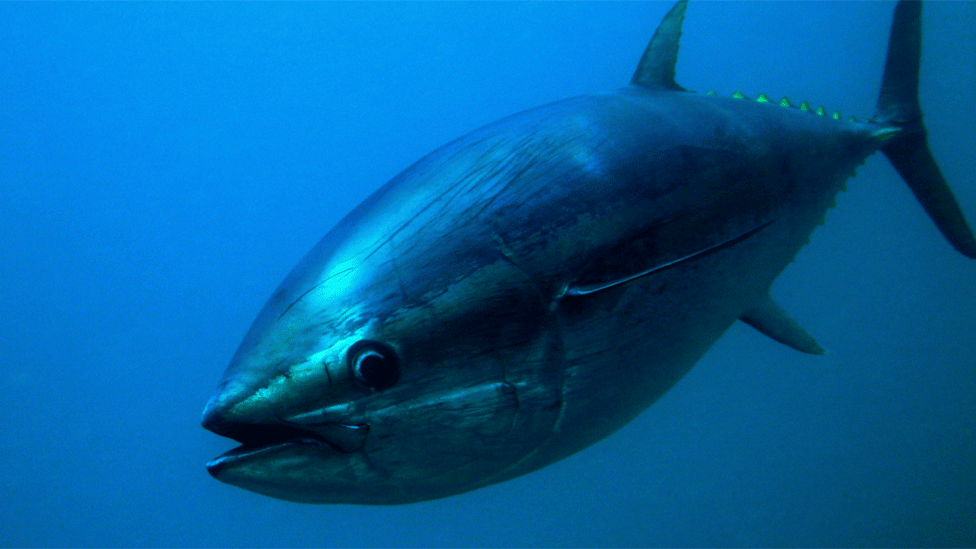Atlantic tuna to be tagged off Western Isles
- Published

Bluefin tuna were once a common sight in British waters
Atlantic bluefin tuna are to be caught, satellite tagged and then released in an effort to better understand the reappearance of the fish off Scotland.
The fish were once a common sight around the British Isles, before disappearing in the 1990s.
In the past six years, tuna have frequently been seen from late summer to winter.
Community company Harris Development Ltd has permission for three boats to take anglers out to catch the fish.
The project could eventually lead to tuna fishing tourism in the Western Isles.
'Clearer picture'
Kenneth MacLeod, chairman of Harris Development Ltd, said the fish pass by the islands between August and November.
He said: "We do know they follow shoals of mackerel and herring.
"We believe they are leaving the Mediterranean, come up the Atlantic as far as Greenland and Iceland, and we are then seeing them on their way back south."
Mr MacLeod said he hoped the tagging project would provide a "clearer picture" of the tunas' movements.
The Western Isles, where the first recorded rod-line catch of an Atlantic bluefin tuna was made in 2013, is a focus of the research.
The fish caught seven years ago by Angus Campbell, an Isle of Harris-based boat operator, weighed 515lb (233kg).
Bluefin tuna are one of the largest and fastest fish on the planet. They started declining in numbers off the British Isles from the 1940s.
Previously, bluefin tuna tagged off the remote Scottish archipelago of St Kilda were tracked to the Azores and the Bay of Biscay.
- Published6 November 2019

- Published2 January 2019

- Published22 October 2018

- Published17 March 2015
